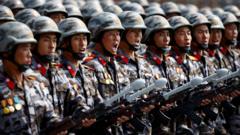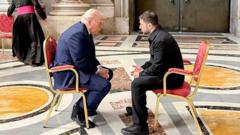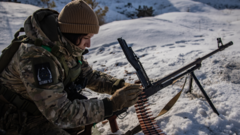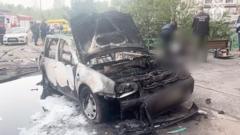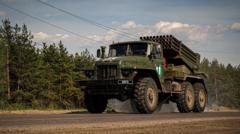Russian President Vladimir Putin and North Korean leader Kim Jong-un confirm the deployment of troops in Ukraine's ongoing conflict. As casualties from North Korea rise, both leaders laud the soldiers' bravery and reinforce their military partnership.
Moscow and Pyongyang Acknowledge Joint Military Operations in Ukraine

Moscow and Pyongyang Acknowledge Joint Military Operations in Ukraine
North Korean troops' engagement in Ukraine has been officially recognized by both Russia and North Korea, highlighting the expanding military alliance between the two nations.
For months, the specifics of North Korean troop involvement in Russia’s conflict against Ukraine remained ambiguous. However, recent statements from leaders Vladimir Putin and Kim Jong-un declare that North Korean soldiers have officially been fighting alongside Russian forces, contributing to the liberation of regions such as Kursk from Ukrainian control.
North Korea’s state media reported that Kim Jong-un dispatched these troops to enhance military cooperation, lauding their "heroism" in battle. To commemorate the fallen, he has commanded the construction of a monument—a gesture intended to signify military camaraderie and to remind Putin of the sacrifices made.
Putin reciprocated by recognizing the valor of North Korean special forces and pledging that their sacrifices would be honored alongside Russian soldiers who fought side by side with them. This acknowledgment follows Russia’s initial public confirmation of North Korean support, despite the long-acknowledged military alliance.
Reports from South Korea, Ukraine, and the United States estimate that around 4,000 North Korean soldiers have been killed or wounded during their service with Russian armed forces since the military engagement began. Overall, it is believed that approximately 14,000 North Korean troops, primarily from special operations units, have been sent to Russia, with 3,000 replacements dispatched to account for prior casualties. Furthermore, North Korea has supplied Russia with millions of artillery shells and ballistic missiles, bolstering the arsenal used to strike Ukrainian cities.


